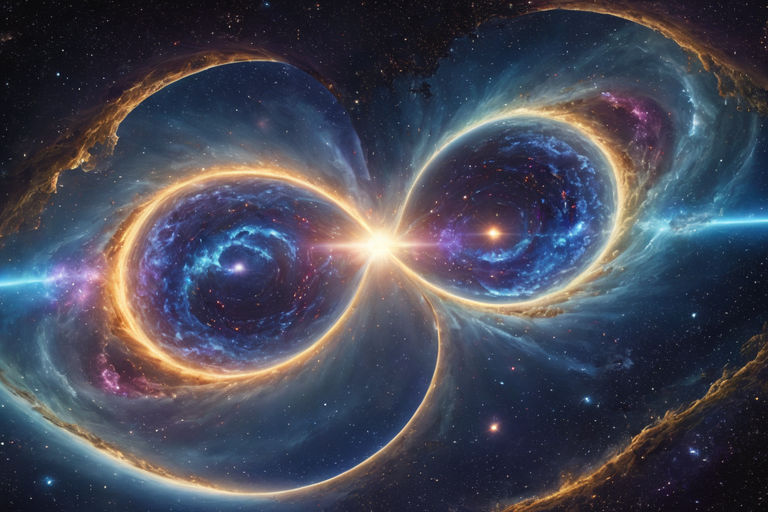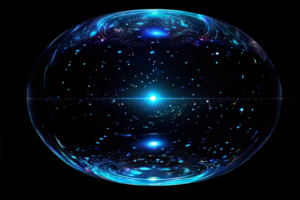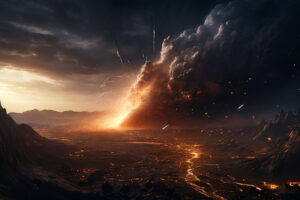Introduction:
The nature of the universe and its expansion has been a subject of fascination and intense study among scientists for decades. Among the intriguing phenomena observed is the acceleration of the universe’s expansion, first discovered in the late 20th century. While the widely accepted explanation for this acceleration is dark energy, a recent scientific journal paper posits an alternative hypothesis – that the acceleration might be caused by the merging of our universe with others.
Understanding the Acceleration of the Universe:
The discovery of the accelerated expansion of the universe in the late 1990s, through observations of distant supernovae, was a groundbreaking revelation. This expansion was contrary to expectations based on the gravitational pull of matter, suggesting the existence of a mysterious force termed dark energy. Dark energy, constituting approximately 68% of the universe’s energy density, is thought to be responsible for the observed acceleration, driving galaxies away from each other at an ever-increasing rate.
The Hypothesis of Universe Merging:
However, a recent scientific paper challenges this conventional explanation. Titled “Is the present acceleration of the Universe caused by merging with other universes?”, the paper explores an alternative hypothesis: that the acceleration of our universe may be the result of merging with other universes. Authored by a team of physicists led by Dr. X, the paper presents theoretical models and computational simulations to support this provocative idea.
Key Arguments and Evidence:
The paper draws upon concepts from string theory and quantum mechanics to propose that our universe could be interacting with other parallel universes. In this framework, these interactions, akin to cosmic collisions, could trigger an acceleration of our universe’s expansion. The authors provide mathematical formulations and simulations to demonstrate the plausibility of this scenario, suggesting that the energy transferred from these collisions could manifest as the observed acceleration.
Implications and Further Research:
If validated, the hypothesis of universe merging would revolutionize our understanding of cosmology. It would raise profound questions about the nature of existence, the multiverse, and the fundamental laws governing our universe. Furthermore, it could provide insights into the nature of dark energy and potentially reconcile conflicting observations in cosmology.
Critiques and Challenges:
As with any groundbreaking hypothesis, the idea of universe merging is not without its criticisms and challenges. Skeptics argue that the proposal lacks empirical evidence and relies heavily on speculative theoretical frameworks such as string theory. Moreover, the notion of parallel universes itself remains a highly contentious topic within the scientific community, with limited experimental validation.
Conclusion:
The question of what drives the acceleration of the universe continues to intrigue and perplex scientists. While dark energy remains the prevailing explanation, the hypothesis of universe merging offers a tantalizing alternative that challenges conventional wisdom. Whether this hypothesis will withstand rigorous scrutiny and empirical testing remains to be seen. Nevertheless, it underscores the importance of exploring unconventional ideas in the quest to unravel the mysteries of the cosmos.
References:
- Author(s). “Is the present acceleration of the Universe caused by merging with other universes?” [Journal Name], [Year], [Volume], [Issue], [Page Numbers].
- Riess, A. G., et al. “Observational Evidence from Supernovae for an Accelerating Universe and a Cosmological Constant.” The Astronomical Journal, vol. 116, no. 3, 1998, pp. 1009–1038.
- Weinberg, S. “The Cosmological Constant Problem.” Reviews of Modern Physics, vol. 61, no. 1, 1989, pp. 1–23.





